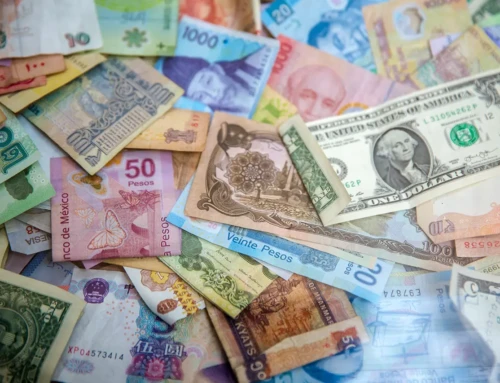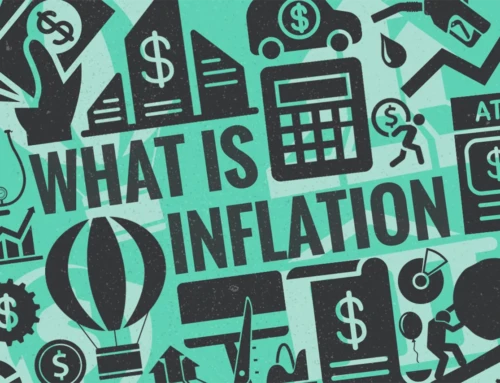Filtering the Noise

I have an old-ish pair of noise-cancelling headphones, and to my untrained ear, they sound like they filter the noise by just making a low humming sound in the background. They remind me of the media right now, with an awful lot of noise about flattening the curves. Viral and yield. Maybe humming while we think about our next financial move will help filter the noise in the economy and markets. And then again, maybe there’s another way.
The noise is growing louder because both COVID-19 and the markets have entered a new phase in their cycles. We want to give you our perspective and plan going forward in the hopes they will help you filter out the noise you’re hearing.
This Is a Learning Moment
While no there’s no way anyone could have known a pandemic would be the trigger point, in hindsight this is one of the most widely-anticipated market corrections in the history of market corrections. But we also knew it would be a surprise in the end. It had to be. Because that’s how we learn.
Over-stimulation by the central banks and over-spending by governments in answer to the Global Financial Crisis (and long before for all you history buffs, but especiallysince 2008), appear to be coming to a head again. In 2008, the Fed, the IMF, and the European Central Bank intervened quickly and decisively. As dramatic and painful as the GFC was, central banks averted a full-on, 1929-style crash and corresponding global depression.
In 2020, as dramatic and painful as this crash has been, asset prices could go a lot lower before we hit a true bottom, and it could be a long time before they go back up again. We say this for a couple of reasons.
First, because other oil-producing nations of the world have taken the current weakness in our financial system as an opportunity to try and rid themselves of their American competition. Saudi Arabia and Russia have driven oil prices to extraordinarily low levels, and this could put the hydro-fracturing American companies out of business. This could initiate a domino chain of defaulting bonds. This source of instability is not going to go away even if COVID-19 cycles through quickly and causes a less significant economic and human life toll than is currently anticipated.
Second, because this time around, as we (and others) have been saying, we have developed a tolerance for the stimulus “remedy” central banks have to offer as a solution. Central Banks don’t have near as much to give us as they did in 2008, either, because they’ve been administering steadily ever since out of fear we’d slip back into our state of deflation. In the past three weeks, The Fed has cut the inter-bank rate to zero, injected another trillion into the repo market, and said they’ll do more. Market participants ignored it all and kept right on selling.
Congress and the current administration just approved their fiscal stimulus package. We’ll see over the next week or so whether this gives market participants cause for pause. But whatever happens in the coming weeks, rest assured the implications of this hard stop in the global economy are far reaching, and will not be short lived, no matter what politicians and the other talking heads say. Fortunes and lives will be lost and made in this transition.
Our biggest concern is no longer the crash in asset prices, but the knock-on erosion of value in the dollar.
The Quantum Leap View
Our view is that we may well see a full “reversion to the mean” of US equity valuations. In plain English, this means prices could go two or three times lower than they already have. And because it doesn’t appear that the government or the central banks have any other answer for the problem, the turnaround could take years.
As happy and joyful as that all sounds, it gets better.
On the other side of this deflationary period, because the government and central banks have exponentially expanded the circulation of US dollars, our biggest concern is no longer the crash in asset prices, but the knock-on erosion of value in the dollar. By flooding the globe with currency, it seems increasingly possible to us that we experience a rebound effect in the form of disastrous inflation.
The remaining questions are: 1) whether that period of inflation begins abruptly and sharply, or slowly and grindingly; 2) what assets will afford the greatest hedge against it?; 3) when do you begin to take positions in them to prepare?, and; 4) how quickly do you re-enter them?
Historically, things like precious metals, real estate, commodities, and stocks have been the best hedge against inflation. We think they will continue to. Oil is as low as we’ve ever seen it in our adult lives. Other commodities, like silver are as low as we’ve seen them. Real estate is still a wild card. Commercial real estate has dropped like a stone. Residential, not so much. And as noted, broad market stock prices are lower, but they still aren’t low. So, then it becomes a matter of determining which ones are best suited for you individually, and how much of your money do you take these positions with.
We often joke (half-joke), that we could give our advice away. We say this because most people need to hear new ideas several times before they accept it, or even give it any attention. And when it comes to implementing the strategies we employ, most people become overwhelmed and need us to help them from a practical application standpoint and an emotional one.
So here we go again. Regulatory disclosure first, this does not constitute individual tax or investment advice. First and foremost, as we said in a previous post, get a handle on your cash flow; if you don’t, nothing else you do will help.
Then, if you own a business, invest in it according to your thoughtful (and written) business plan. Nothing else you invest in will be as controllable, or as fruitful as investing in your own business. If you don’t own a business, if you can stomach the volatility, and you have time on your side for some portion of your money, buy commodities now. Buy stocks when they get cheaper. Real estate is still a wait and see.
There are lots of other things to keep an eye on in these times (aside from maintaining good health, obviously). Interest rates have been highly volatile, and they’re up from the lowest point they hit recently, but they could go down again, so restructuring debt may have merit. The IRS and Treasury Department have changed tax filing and payment deadlines, which may create other opportunities for you. You may also want to evaluate your insurance plan. If credit markets deteriorate the way they might, insurance companies are going to experience pressure to increase what they charge for coverage to compensate.
There’s your blueprint.
We Are Here to Help
We know it’s easy to get overwhelmed by all the noise. We help our clients filter out the noise. Another thing we say frequently is no advisor or product can do all of this for you. If you aren’t engaged in the management of your finances, no strategy will help. If you have an advisor, ask them how you can become involved and learn more about what they’re recommending and why.
We are going to get through this together. We’re going to run a live webinar in the next week or so, so stay tuned for more contact from us. Until then, stay positive, and stay healthy.
Written
March 26, 2020
Read Time
6 min read
More Posts




